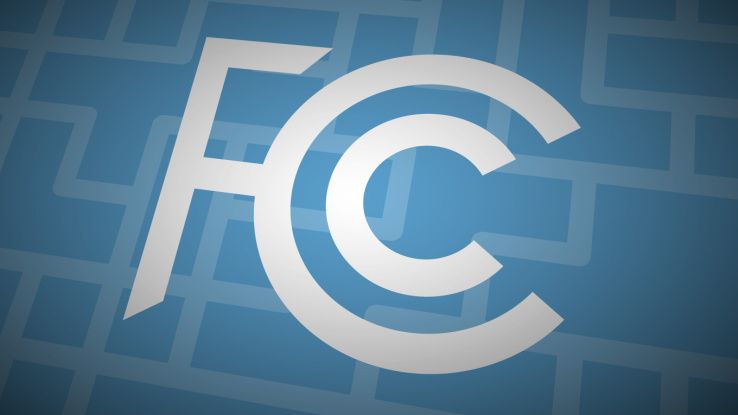
This post originally appeared at Common Dreams.
Rarely do the public comments made on a federal agency website garner so many headlines, but the Federal Communications Commission’s (FCC) plan to gut net neutrality protections has sparked an all-out war between open internet advocates and a pro-corporate bot—with a few additional bad apples sprinkled in.
The FCC website crashed last week after HBO host John Oliver urged viewers to share their concerns over the plan to roll back the rule that classifies the internet as a public utility and prohibits Internet Service Providers (ISPs) from discriminating against websites or charging more for faster loading times.
That avalanche of criticism was swiftly met by another flood in support of the plan. However, reporters discovered that, as of Friday, at least 440,000 of the anti-net neutrality comments used identical language. What’s more, the comments were attached to names and addresses of people (more than 7,000 from Colorado alone) who, when contacted by reporters, said they had “no idea where that came from.”
Data scientist Jeffrey Fossett examined the comments and found that, once the anti-net neutrality spam was filtered out, an estimated 97 percent of the nearly 700,000 remaining filings supported the FCC’s 2015 net neutrality protections. Those findings prompted him to conclude that the FCC should “reconsider its position” before a preliminary vote on Thursday.
However, given that FCC chairman Ajit Pai has previously promised to take a “weed whacker” to FCC regulations and declared that net neutrality’s “days are numbered,” a reversal is unlikely.
Instead, Pai entered the fray over the weekend when he released what is meant to be a comical video of him reading “mean tweets” (as celebrities and even former President Barack Obama have done in the past for a popular segment on the “Jimmy Kimmel Show”).
The video, produced by the conservative news site Independent Journal Review, highlights unsavory comments directed toward the chair and appears to be an attempt to undermine those who expressed criticism of the widely unpopular rule change, as well as distract from the fraudulent comment scandal.
Indeed, as Ars Technica senior journalist Jon Brodkin pointed out on Monday, following the agency’s promotion of the video, Pai’s chief of staff Matthew Berry tweeted that it’s “Pathetic that Title II activists have been reduced to trying to harass @AjitPaiFCC’s family.”
Brodkin continued:
Berry pointed to an article in the Washington Free Beacon that describes pro-net neutrality groups leaving leaflets on doors in Pai’s neighborhood and holding a vigil on the sidewalk outside Pai’s house. The article argued that the net neutrality protestors have “a history of participating in violent protests,” but none of the violent incidents mentioned by the Free Beacon involved Pai or his family.
Berry also condemned racist comments about Pai that were submitted to the FCC, and pro-net neutrality group Free Press agreed that racism and threats have no place in policy debates. The Internet Association also condemned threats and hateful comments directed at Pai.
HBO’s Oliver addressed the issue as well on Sunday evening, telling viewers that “writing racist things on the internet is not how you win the net neutrality debate, it’s how you win the presidency,” in a clear jab at President Donald Trump.
And despite Pai’s claim in the “mean tweets” video that he “enjoy[s] the public debate about the future of the internet,” Brodkin highlighted how one-sided his portrayal of the discussion has been. “[W]hile Pai and his staff have brought attention to net neutrality supporters whose opinions can be easily dismissed, they haven’t tried to highlight serious arguments from the pro-net neutrality side in the days before the FCC takes its vote,” Brodkin wrote.
To wit, Pai issued a statement Friday extolling a letter sent by more than a dozen corporate ISPs voicing opposition to net neutrality, hailing the statement as an “exceptionally important contribution to the debate.”
Yet, net neutrality proponents are undeterred. Despite the fact that the FCC is temporarily closed for comment as it is having a period of reflection before Thursday’s vote, the Electronic Frontier Foundation is continuing to collect feedback on its website DearFCC.org. Submissions will be posted when FCC re-opens public comment.
Free Press and Color of Change are also holding a rally outside the FCC headquarters on Thursday “to represent millions of people who need Net Neutrality and will fight for it.”
As many have pointed out, the fight to preserve net neutrality is far bigger than cable companies and loading speeds.
“We’re committed to this fight because we recognize that a truly open internet makes it possible for people to tell their own stories, organize their communities, hold their leaders accountable and improve their lives,” Free Press wrote in a call to action earlier this month. “Net neutrality is also essential for online activism — including the activism that saved net neutrality in the first place. Ending it would incapacitate the resistance, which many organizers and movement-builders understand all too well.”



